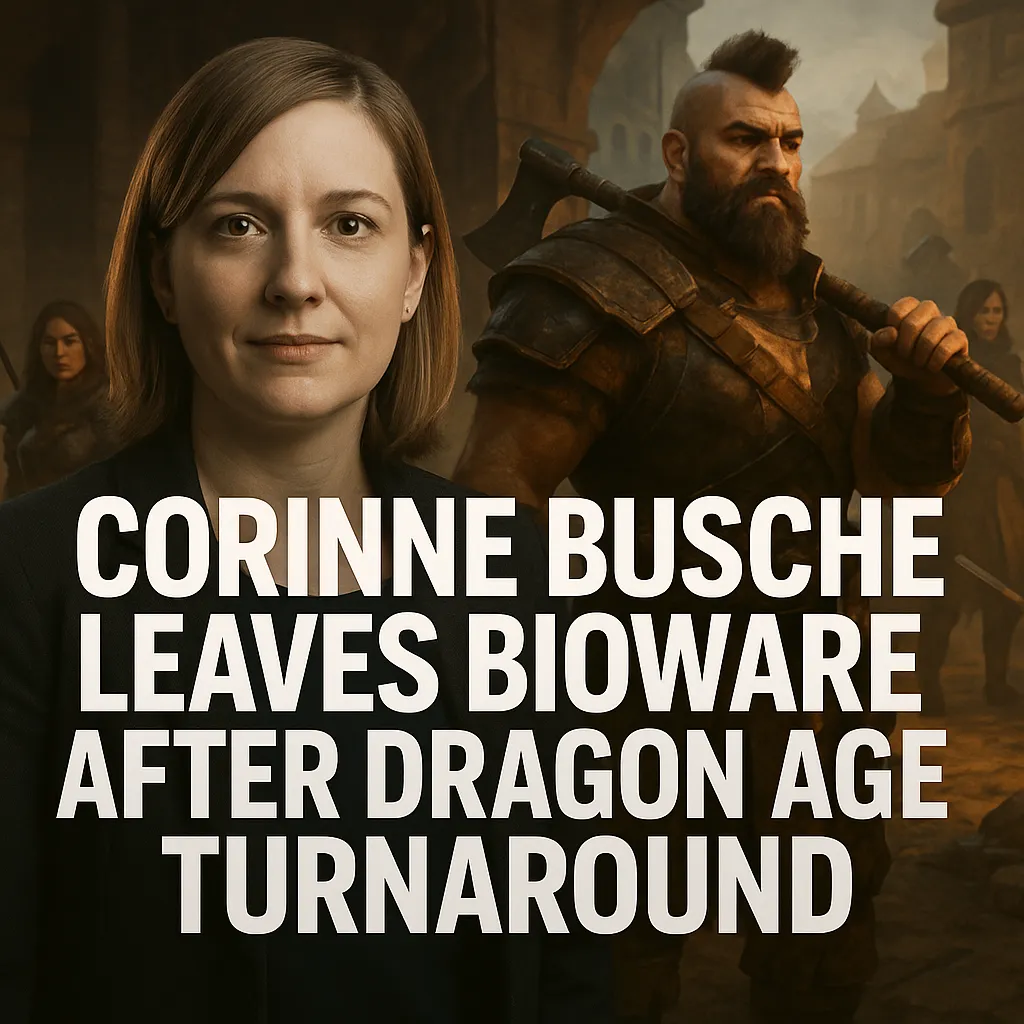When a game director walks away from a studio like BioWare, it’s more than just a career move — it’s a signal. Corinne Busche’s exit after nearly two decades with Electronic Arts marks a turning point, not just for her, but for the entire narrative of Dragon Age: The Veilguard — a title that weathered troubled waters to finally set sail as a single-player RPG. What happened behind the scenes? What does her departure mean for the future of BioWare and the RPG genre? Let’s unpack it all.
A Career Forged in Systems and Stories
Corinne Busche first joined EA in 2006, cutting her teeth as a designer. One of her early projects was The Sims 3: Into the Future expansion — a sandbox of speculative design and forward-thinking mechanics. By 2019, Busche transitioned to BioWare as a lead systems designer. From there, her climb was steady. She eventually took the helm as game director for Dragon Age: The Veilguard, overseeing a dramatic transformation of the game’s identity.
That arc — from sandbox builder to RPG leader — isn’t just a résumé. It’s a roadmap of adaptability, growth, and creative vision. And it made her the right person for the job when BioWare was in dire need of course correction.
The Anthem Fallout and a Studio in Recovery
BioWare’s struggles are no secret. After the critical failure of Anthem in 2021, the studio faced an identity crisis. Long known for character-driven, single-player epics, they had pivoted toward the live-service model — and it hadn’t worked.
Dragon Age: The Veilguard began development during this uncertain period. Originally conceived as a live-service experience, it was later reimagined as a traditional single-player RPG. That shift wasn’t just technical — it was philosophical. The studio had to reorient itself around the kind of storytelling and design that had once made it iconic.
Busche played a key role in that turnaround. As she put it, her goal was “to come in and help right the ship.” She succeeded — but not without sacrifice.
The Toll of Leadership and the Privilege of Fulfillment
In her statement to Eurogamer, Busche described the process of reworking Veilguard as “hard-fought.” She acknowledged that projects with chaotic development cycles rarely reach the finish line — let alone arrive in good condition. But this one did. And she was at the helm.
“The chance to return [Dragon Age] to a proper quality single-player RPG was the privilege of a lifetime.”
That quote isn’t just PR polish. It’s a window into the emotional investment and creative energy that went into the project. Leading a team through that kind of pivot — from live-service to narrative-driven — requires both strategic clarity and unshakable commitment.
Busche admitted the journey took a toll on her. While she departed on her own terms, it’s clear the weight of the process lingered. She left feeling she had done what she came to do — restore something worth saving.
Cultural Challenges Still Linger at BioWare
Not everything was tied up in a neat bow. Busche was candid about the internal hurdles still facing BioWare.
“BioWare still has a lot of work to do culturally, but I do believe they are on the right footing now.”
That line speaks volumes. Studio culture — the unwritten code of how people work, communicate, and collaborate — doesn’t fix itself overnight. While Veilguard may be a success story in its own right, it came at a cost. Structural and cultural change inside large development houses is slow, often reactive, and always messy.
Yet Busche’s tone remained hopeful. Her faith in the direction BioWare is now headed suggests that future titles — perhaps the next Mass Effect — will benefit from the growing pains of Veilguard.
What Comes Next: Staying True to CRPG Roots
Though Busche didn’t specify her new destination, she confirmed she’s staying within the CRPG space. That’s significant.
“I was presented with an opportunity I couldn’t turn down.”
It’s rare to see someone with this level of experience and recent success walk away — unless they see something worth chasing. CRPGs (computer role-playing games) have seen a quiet renaissance in recent years, from Baldur’s Gate 3 to Disco Elysium. And with Busche’s pedigree, it’s likely she’s landed somewhere with the freedom to push that envelope even further.
She emphasized her ongoing commitment to “the traditions of great characters,” suggesting her next project will continue the narrative depth that fans have come to expect from her work.
A Bigger Picture: BioWare, EA, and the Future of RPGs
Busche’s departure raises broader questions. Can BioWare maintain its footing without her? Will Veilguard‘s success inspire EA to recommit to story-first games, or will it be seen as an exception rather than a new standard?
Here’s what we know:
- 18 years: That’s how long Busche spent within EA’s ecosystem.
- 6 years at BioWare, where she rose from systems designer to game director.
- 1 major game shipped under her leadership — Dragon Age: The Veilguard — that emerged from a troubled production cycle with critical praise.
- 1 industry still recovering from a shift toward monetization over storytelling.
Busche’s story isn’t just one of individual achievement — it’s a microcosm of the wider RPG genre. A genre constantly pulled between profit models and passion projects. Her exit is a reminder that good games don’t just happen — they’re fought for, reworked, and rebuilt by people who care deeply about the experience they’re creating.

